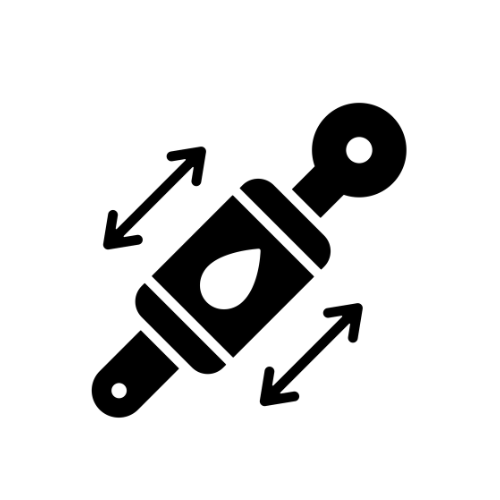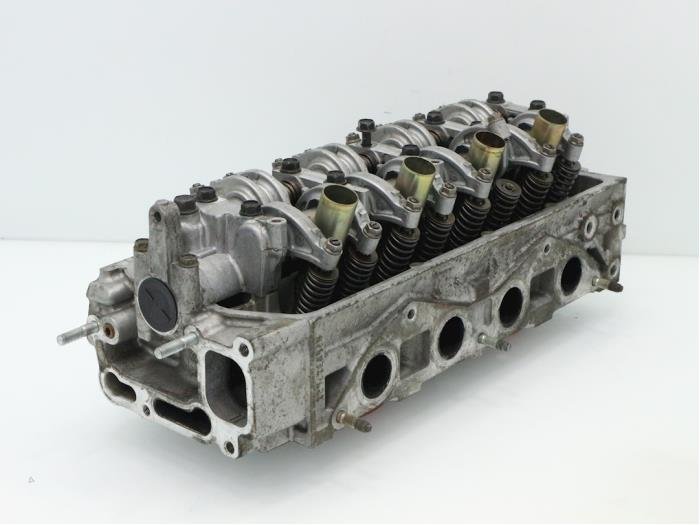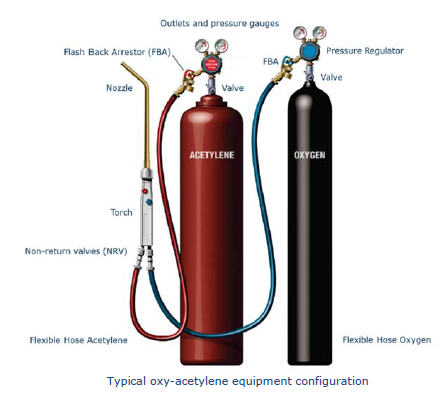What Can Cause a Misfire in Cylinder: Top Troubleshooting Tips
A misfire in a cylinder can be caused by issues with spark plugs, fuel injectors, or compression. It can also be due to a vacuum leak or faulty ignition system.
Misfires can lead to poor engine performance and should be addressed promptly to avoid further damage. Identifying the root cause of the misfire is crucial in ensuring the engine runs smoothly and efficiently. Regular maintenance and timely diagnosis of any issues can prevent misfires and prolong the life of the vehicle.
Addressing misfires promptly can also improve fuel efficiency and overall driving experience.
Introduction To Engine Misfires
Engine misfires can be caused by various factors, with cylinder issues being a common culprit. A misfire in a cylinder can result from faulty spark plugs, fuel delivery problems, or engine timing issues. Detecting and addressing the root cause promptly is crucial for optimal engine performance.
Symptoms Of A Cylinder Misfire
Potential Consequences If Left Unaddressed
Misfires in a cylinder can occur due to a variety of reasons, and it is essential to understand the root cause to avoid potential engine damage. A misfire can be defined as the incomplete combustion of fuel in a cylinder, leading to a lack of power, rough idling, and reduced fuel efficiency.Symptoms Of A Cylinder Misfire
The symptoms of a cylinder misfire can vary, but some of the most common ones include a rough idle, lack of power or acceleration, engine hesitation, and increased exhaust emissions. The check engine light may also illuminate, indicating a problem with the engine.Potential Consequences If Left Unaddressed
If left unaddressed, a cylinder misfire can lead to severe consequences, including damage to the engine’s catalytic converter, decreased fuel efficiency, and potentially even engine damage. Over time, a misfire can cause the engine to run rough, leading to more significant issues down the line. It is essential to address any symptoms of a misfire promptly to prevent more severe damage to your vehicle. In conclusion, understanding the symptoms of a cylinder misfire and addressing them promptly can help prevent more severe engine damage and potentially save you money in the long run.Fuel System Failures
When it comes to engine misfires, fuel system failures can be a significant culprit. Issues with the fuel delivery process can lead to a lack of proper fuel-air mixture, resulting in a misfire in the cylinder. Two common fuel system failures that can cause this issue include clogged fuel injectors and faulty fuel pumps.
Clogged Fuel Injectors
Clogged fuel injectors can disrupt the fuel spray pattern, leading to uneven fuel distribution in the cylinder. This can cause a lean or rich fuel mixture, resulting in a misfire. The accumulation of dirt, debris, or varnish in the injectors can obstruct the flow of fuel, affecting the engine’s performance.
Faulty Fuel Pumps
A faulty fuel pump can lead to insufficient fuel pressure, causing a lean condition that may result in a misfire. If the pump is not delivering the right amount of fuel to the engine, it can disrupt the combustion process and lead to cylinder misfires. Additionally, a worn-out fuel pump may fail to maintain the required fuel pressure, impacting the engine’s operation.
Ignition System Issues
Cylinder misfires can be caused by ignition system issues such as faulty spark plugs, damaged ignition coils, or a failing ignition control module. These issues can disrupt the spark delivery to the cylinder, leading to misfires and potential engine performance problems.
Regular maintenance and timely diagnosis can help prevent these issues.
Worn Spark Plugs
Worn spark plugs can cause a misfire in the cylinder. The spark plugs create an electric spark that ignites the fuel-air mixture. Over time, spark plugs can become worn, dirty, or fouled, reducing their ability to produce a strong spark. When the spark plug is not producing a strong enough spark, it can cause a misfire in the cylinder. Replacing the spark plugs is an easy and affordable fix for this issue.Defective Ignition Coils
Another common cause of misfires in the cylinder is defective ignition coils. The ignition coil is responsible for providing the spark to ignite the fuel-air mixture in the cylinder. If the ignition coil is not working properly, it can cause a weak or inconsistent spark, leading to misfires. Ignition coils can become damaged over time due to heat and vibration. Replacing a defective ignition coil can solve the issue and prevent further damage to the engine.Other Ignition System Issues
There are other components in the ignition system that can cause misfires in the cylinder, such as a faulty spark plug wire, distributor cap, or rotor. These components can become damaged or worn over time, leading to weak or inconsistent spark and misfires. A thorough inspection of the ignition system can help diagnose and fix any issues. In summary, a misfire in the cylinder can be caused by ignition system issues such as worn spark plugs or defective ignition coils. Regular maintenance and inspection of the ignition system can help prevent these issues and ensure proper engine performance.Air Intake And Compression Problems
When it comes to engine misfires, air intake and compression problems can be major culprits. These issues can lead to inefficient combustion and cause a cylinder misfire. Let’s explore the potential air intake and compression problems that can trigger a misfire in a cylinder.
Vacuum Leaks
A common cause of air intake problems is vacuum leaks. These leaks can occur in various components such as the intake manifold gasket, vacuum hoses, or even the throttle body gasket. When unmetered air enters the engine due to a vacuum leak, it can disrupt the air-fuel mixture and lead to a cylinder misfire.
Poor Cylinder Compression
Insufficient cylinder compression can also result in a misfire. If the compression in a cylinder is lower than the specified range, it can lead to a lack of power and cause a misfire. This issue can stem from worn piston rings, damaged cylinder walls, or faulty valves that fail to seal properly, allowing compression to escape.
Exhaust System Obstructions
When it comes to diagnosing a misfire in a cylinder, one possible culprit could be exhaust system obstructions. The exhaust system plays a crucial role in the performance of your vehicle, and any blockages or malfunctions within it can lead to misfires and a decrease in engine efficiency.
Blocked Exhaust Manifold
A blocked exhaust manifold can result in a misfire by restricting the flow of exhaust gases out of the engine. This blockage can be caused by a variety of factors, such as a buildup of carbon deposits, a damaged or collapsed pipe, or even a foreign object lodged in the manifold. When the exhaust gases are unable to escape properly, it can create increased back pressure in the cylinder, leading to a misfire.
Catalytic Converter Malfunctions
A malfunctioning catalytic converter can also contribute to a misfire in a cylinder. The catalytic converter is responsible for reducing harmful emissions by converting toxic gases into less harmful substances. However, if the converter becomes clogged or damaged, it can impede the flow of exhaust gases and disrupt the combustion process. This can cause a misfire and potentially trigger the check engine light.
It is important to note that both a blocked exhaust manifold and catalytic converter malfunctions can be caused by various factors, including normal wear and tear, improper maintenance, or engine issues. Regular maintenance and inspections of the exhaust system can help prevent these obstructions and ensure optimal engine performance.
Sensor And Computer Malfunctions
When it comes to engine misfires, sensor and computer malfunctions can play a significant role. Failed oxygen sensors and engine control unit errors are common culprits that can lead to misfires in a cylinder.
Failed Oxygen Sensors
Oxygen sensors play a crucial role in measuring the amount of unburned oxygen in the exhaust system. When these sensors fail, they can inaccurately detect the air-fuel ratio, leading to a misfire in the cylinder.
Engine Control Unit (ecu) Errors
The engine control unit (ECU) is responsible for managing various aspects of the engine’s operation, including fuel injection, ignition timing, and emissions control. If the ECU malfunctions, it can send incorrect signals to the fuel injectors or ignition system, resulting in a misfire.
Mechanical Wear And Tear
Mechanical wear and tear can cause a misfire in the cylinder. This issue may arise due to factors such as worn-out spark plugs, a faulty ignition coil, or a damaged fuel injector. Identifying and addressing these underlying mechanical issues is crucial for resolving the misfire and ensuring optimal engine performance.
Timing Belt Issues
Valvetrain Damage
When it comes to misfires in cylinders, mechanical wear and tear can play a significant role. This wear and tear can lead to various issues within the engine, causing cylinders to misfire.
Timing Belt Issues
- Worn timing belts can cause misfires due to incorrect timing.
- Timing belt teeth can wear out, affecting cylinder firing.
- Incorrect tension on the timing belt can lead to misfires.
Valvetrain Damage
- Damaged valves can result in misfires in cylinders.
- Worn camshafts may cause issues with valve timing.
- Valve springs with wear can impact cylinder firing.
Troubleshooting Tips
When experiencing a misfire in a cylinder, it’s crucial to identify the root cause quickly to prevent further damage to your vehicle. Here are some troubleshooting tips to help you diagnose and resolve the issue effectively.
Diagnostic Tool Usage
- Use an OBD-II scanner to retrieve error codes.
- Check for specific codes related to cylinder misfires.
- Monitor live data to analyze engine performance.
Professional Inspection Recommendations
- Consult a certified mechanic for a thorough diagnosis.
- Perform a compression test to assess engine health.
- Inspect ignition system components for wear or damage.
Maintenance To Prevent Misfires
Routine Service Intervals
Regular maintenance can help prevent cylinder misfires.
- Change spark plugs every 30,000 miles.
- Check ignition coils every 50,000 miles.
- Inspect fuel injectors annually.
Performance Upgrades
Enhancing engine components can reduce the risk of misfires.
- Upgrade to high-performance spark plugs.
- Install a quality ignition system.
- Use premium fuel for cleaner combustion.
Conclusion
Understanding the potential causes of a misfire in a cylinder is crucial for maintaining optimal engine performance. From faulty spark plugs or ignition coils to fuel delivery issues and compression problems, various factors can contribute to this common problem. By diagnosing and addressing these issues promptly, you can prevent further damage and ensure a smooth-running engine.
Regular maintenance and professional assistance are essential for identifying and resolving cylinder misfires effectively. Stay proactive and keep your engine running smoothly for years to come.

Our mission is to be your trusted resource for everything related to car cylinders.



